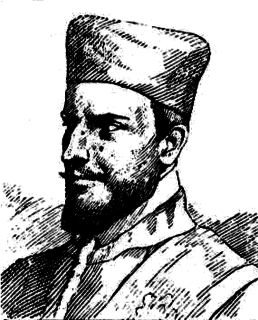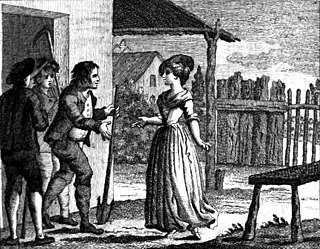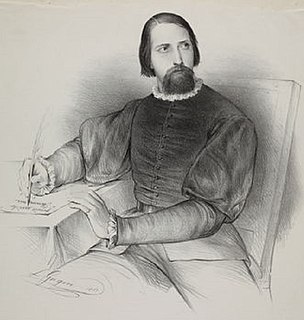Related Research Articles
This is a list of notable events in music that took place in the year 1686.

Ercole amante is an opera in a prologue and five acts by Francesco Cavalli. Its Italian libretto is by Francesco Buti, based on Sophocles' The Trachiniae and on the ninth book of Ovid's Metamorphoses. The first performance took place on 7 February 1662 in the Salle des Machines of the Tuileries in Paris.

Armida Abbandonata is an opera in three acts by the Italian composer Niccolò Jommelli. The libretto, by Francesco Saverio De Rogatis, is based on the epic poem Jerusalem Delivered by Torquato Tasso. The opera was first performed at the Teatro San Carlo, Naples, on 30 May 1770. The young Wolfgang Amadeus Mozart was in the audience. He described the work as "beautiful but too serious and old-fashioned for the theatre". Nevertheless, despite a lukewarm reception at its premiere, Armida abbandonata was widely performed throughout Italy in the following years.
Tomaso Benvenuti was a nineteenth-century Italian composer of opera. He was born in Cavarzere in the Veneto and died in Rome at the age of 68.
L'Orfeide is an opera composed by Gian Francesco Malipiero who also wrote the Italian libretto, partly based on the myth of Orpheus and incorporating texts by Italian Renaissance poets. The work consists of three parts – La morte delle maschere, Sette canzoni, and Orfeo, ovvero L'ottava canzone. It received its first complete performance on 5 November 1925 at the Stadttheater in Düsseldorf.
Raffaele Mirate was a celebrated Italian operatic tenor who had an active career from the 1830s through the 1860s. Known for his intelligent phrasing and bright and powerful vocal timbre, he was regarded as an outstanding interpreter of the tenor roles in the early and middle period operas of Giuseppe Verdi. He notably created the role of the Duke of Mantua in the world premiere of Verdi's Rigoletto in 1851. He was also a highly regarded interpreter of bel canto roles, excelling in the operas of Vincenzo Bellini, Gaetano Donizetti, and Gioachino Rossini.

Annibale Pio Fabri, also known as Balino, from Annibalino, diminutive of his first name, was an Italian composer and singer of the 18th century. One of the leading tenors of his age in a time dominated by the castrati, Fabri is now best known for his association with the composer George Frideric Handel, in whose operas Fabri sang.

Carlo Pedrotti was an Italian conductor, administrator and composer, principally of opera. An associate of Giuseppe Verdi's, he also taught two internationally renowned Italian operatic tenors, Francesco Tamagno and Alessandro Bonci.

Il Pompeo is a dramma per musica in three acts by composer Alessandro Scarlatti. Written in 1682 when Scarlatti was 22 years old, it was his fourth opera and first dramatic work on a serious and grand subject. The opera uses an Italian language libretto by Nicolò Minato which had previously been used by Francesco Cavalli for his 1666 opera Pompeo Magno. The work premiered at the Teatro di Palazzo Colonna in Rome on 25 January 1683.
Andrea Bellini was an Italian operatic bass who had an active career performing in Italy's major opera houses from the 1840s through the 1870s. He specialized in the buffo repertoire and was most often heard in comprimario roles.
Francesco Basili was an Italian composer and conductor. The son of Andrea Basili, he was born in Loreto and died in Rome. See: List of music students by teacher: A to B#Francesco Basili.

Rito Selvaggi was an Italian composer, pianist, conductor, poet, and educator. He composed numerous works, including operas, oratorios and sacred music as well symphonic and chamber music. He also served as the Director of the music conservatories in Palermo, Parma, and Pesaro.

Il filosofo di campagna is a dramma giocoso per musica in 3 acts by composer Baldassare Galuppi. The opera uses an Italian language libretto by Carlo Goldoni. The work premiered at the Teatro San Samuele in Venice on 26 October 1754.
I due timidi is a one-act radio opera composed in 1950 by Nino Rota with libretto by the film writer Suso Cecchi d'Amico.

Ennio Porrino was an Italian composer and teacher. Amongst his compositions were orchestral works, an oratorio and several operas and ballets. His best known work is the symphonic poem Sardegna, a tribute to his native Sardinia, which premiered in Florence in 1933.

Maria Carbone was an Italian operatic soprano. She created the lead female roles in two of Gian Francesco Malipiero's operas: the title role in Ecuba and Cleopatra in Antonio e Cleopatra.
Nitocri is an opera in two acts composed by Saverio Mercadante to libretto by Apostolo Zeno adapted by Lodovico Piossasco Feys. The libretto is a fictionalised account of the Egyptian queen Nitocris. The opera premiered at the Teatro Regio in Turin on 26 December 1824.
Herbert Handt is an American operatic tenor and later conductor, particularly known for his conducting and editions of rarely performed Italian scores. Handt was born in Philadelphia and studied at the Juilliard School of Music and the Vienna Academy of Music. He made his debut as a singer at the Vienna State Opera in 1949 and his debut as a conductor in Rome in 1960.

Enrico Crivelli was an Italian opera singer who sang leading baritone and bass-baritone roles in the major opera houses of Italy as well as in Spain, Russia, Germany, France, and England. He also composed collections of art songs and published two books on the art of singing. He was born in Brescia, the youngest son of the celebrated tenor Gaetano Crivelli and died in Milan after a career spanning almost 30 years.
References
- ↑ Casaglia, Gherardo (2005). "Francesco Malipiero" . L'Almanacco di Gherardo Casaglia (in Italian).